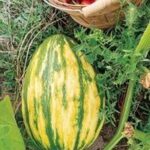This third installment to the organic equivalent gardening treatise involves getting produce to maturity as the gardener wishes and also suggests a late fall use of produce stems, peelings and even plant foilage to create some of the best amendment additive to our soils.
Getting produce to maturity is a must after a summer long of weeding, irrigating, tilling, and temporal plantings. Irrigation adjustment is key. September temperatures have begun to decrease during daytime and night hours.
Transpiration, water loss by plant foilage, is decreased and thus there is not so much a need for irrigation water by plants.
The period between irrigation administration must be lengthened to account for the reduced need for water as temperatures are cooling.
There is such a thing as “too much of a good thing” concerning frequency in irrigation.
Experience has taught El Vecino that too much water can ruin his temporal planting of his Calabaza Mexicana (Trejo Española Mix) winter squash.
Winter squash plants experience a turn down in September by the plants leaves changing to a lightened green rather than their normal verdent green. One summer El Vecino mistook the color change to suggest the needed water.
He irrigated for a longer duration and did not lengthen the period between irrigations. The result was that the mature squash were found to have mold growing in the interior flesh that rendered them a complete loss. La experencia viene tarde (Experience/knowing is sometimes late arriving).
The same applies to the maturity of melons. If a gardener administers too long an irrigation period to his melon crop, the fruit takes on too much, swells and splits the rind on the bottom end.
Many times the melons do so before they are fully mature and while on the plot, begin to mold at the split. It’s better to irrigate one’s melon crop using flash, short duration irrigation periods.
Adjusting irrigation periods for our precious landrace chiles can help the the grower produce a desired level of picanteness in his crop. Applying infrequent irrigations raises the level of capsacium in chile, the compound responsible for it picante character, and make it hotter.
Conversely, normal-scheduled irrigations will make the chile less picante,translating to it being milder. Growers can use irrigation to create their preference character in their chile.
Lastly, a grower can and should create a compost pile into which all of the stems, peelings, husks, and any and all garden organic matter can be recycled to preserve nutrients extracted by growing plants.
All of this organic matter is food for composting worms that help decompose it.
All of the gardens organic matter is good and El Vecino has found that composting worms love chile stems, peelings, and seeds.
There are literally hundreds of them feeding and breaking down these organics when examined in the pile.
Keep in mind that worm casings are extremely nutrient rich and help enrich soil greatly.
There’s no need for artificial fertilizers when one has access to thier own compost. Let us all try organic equivalent gardening.
15th Anniversary
September 2024 marks the 15th Anniversary of the El Vecino gardening column. A heartfelt thank you to the Rio Grande Sun and its editor, Jennifer Garcia, for publishing my writings and making them read well. Its been a pleasure sharing and learning alongside many of you.
Thank you for your readership and your kind words of youy enjoyment in reading the article. I also much appreciate your encouragement, its gratifying.
Gracias por todo!




